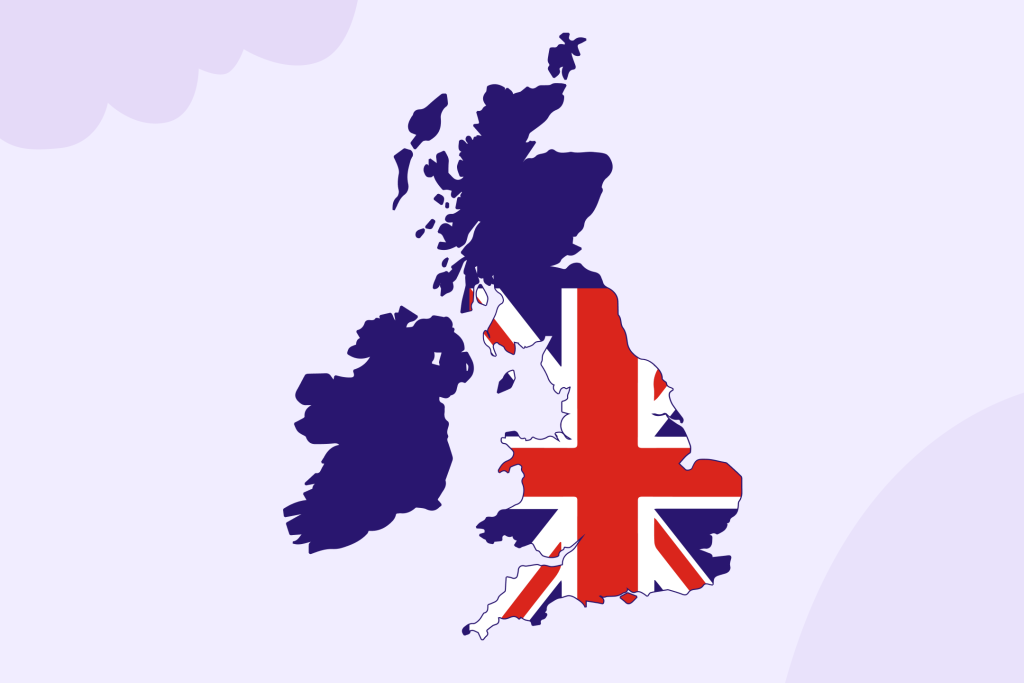From settling into the weather to finding your rhythm, here’s what life in the UK is like.
Other than being one of the easiest places to relocate to, there’s an appeal the United Kingdom has that is deeply rooted in its history. However, beyond being a dreamy place to stay in, it comes with its own realities. So, if you’re making plans to move to the UK, here’s what to expect from culture shock to weather, cost of living, and everything in between.
1. The UK isn’t all about London.

While London is famous and full of opportunities, there are many other great UK cities to live in. For good reason, it’s easy to think of “London” when you hear the UK, because it’s vibrant, diverse, and full of opportunities. But the UK is much more than just London. There are cities like Manchester, Birmingham, Leeds, Bristol, Glasgow, and Edinburgh where you’ll find good job opportunities, affordable housing, and strong immigrant communities. Also living in these cities often means cheaper rent, shorter commutes, and a better work-life balance. For example, a one-bedroom flat in central London might cost £1,800 a month, while in Manchester or Nottingham, you could find a similar apartment for under £1,000.
So instead of London, if you’re moving for work or study, explore other UK cities. You’ll likely save money and enjoy a more relaxed lifestyle with quick train access to London whenever.
2. The UK’s weather is moody.

Yes, it rains a lot. But the UK’s weather isn’t as miserable as it might sound. However, you might never know when it’ll rain. It could be sunshine one minute, then rain the next minute. Be prepared and always have an umbrella, and learn to layer your clothes. Winters are cold and dark, and sunsets can be as early as 4 p.m., while summers are mild with long daylight hours, but sometimes the sun does not set until 10 p.m.
When it comes to the UK weather, you’ll never know if it’ll be a foggy morning, drizzles instead of downpours, or the occasional sunny spell that feels like a national holiday.
3. Cost of living in the UK.

The UK can be expensive, especially in major cities like London, where almost everything costs you about 30–50% more. Rent, transport, and groceries would take up the largest chunk of your income. However, your cost of living will depend heavily on where you live and your lifestyle. Like, if you’re planning to club-hop or restaurant-hop every weekend, then you might be in for a rude shock with how much your cost of living will increase.
4. The UK is multicultural, and that’s a big plus.

The UK is a diverse place to live in, where you’ll find communities that feel like home and help you ease into your new life. Whether you’re from Nigeria, India, Jamaica, or Poland, there are churches, mosques, cultural associations, and community centres that’ll help you adjust and connect. So join groups, attend events, and participate in local festivals like Notting Hill Carnival to Diwali, Chinese New Year, and Nigerian Independence Day.
5. Politeness is a lifestyle.

If there’s one cultural difference you’ll notice right away, it’s the politeness. The British are known for being reserved but courteous. You’ll hear a lot of “sorry,” “please,” and “thank you,” even for small things, like when you bump into them.
Things like queuing and orderliness are taken seriously. And small talk about the weather, friendly but distant neighbours are seen as a general sense of respect for personal space.
6. UK’s healthcare is free, but plan ahead.

The UK’s National Health Service (NHS) is one of the best public healthcare systems in the world, and it’s mostly free for residents. When applying for a visa that’s longer than six months, you’ll need to pay a health surcharge, which gives you access to NHS services during your stay.
Once you arrive, register with a local GP (General Practitioner), who’ll be your first point of contact for any medical concerns. However, keep in mind that non-urgent appointments can take a while, and dental or optical care isn’t always free. If you’d prefer quicker service or need access to specific treatments, consider getting private health insurance for added convenience.
7. UK’s work culture is about balance.

Compared to many other countries, work-life balance is highly valued in UK work culture. The average full-time workweek is around 37–40 hours, and a lot of them prefer not to work beyond office hours or on weekends. The UK also has strong worker protections, including at least 28 days of paid annual leave, maternity and paternity leave, and fair dismissal laws that help with a healthy work-life balance.
8. Education and career opportunities in the UK.
If you’re planning to study in the UK, there are plenty of world-class universities to choose from, including Oxford, Cambridge, and the London School of Economics. But beyond the big names, many affordable, well-ranked regional universities offer excellent education and a great student experience, especially if you’re working with a tighter budget. And it’s for work, industries like finance, healthcare, tech, education, and construction are always in demand. London is a global financial hub, while Manchester and Bristol are booming tech centres.
9. Getting around the UK.

The UK has an extensive and reliable transport system. In London, you’ll likely use the underground Tube, buses, and trains. In other cities, public buses and trams are common. And there are train connections making it easy for you to travel between cities.
10. Staying connected to home.
It’s easy to be homesick, especially in the early months, so staying in touch with loved ones is a way to cope.. Thankfully, with apps like WhatsApp, FaceTime, and Zoom, connection is easier than ever. Create a support system, whether it’s family, friends, or your local diaspora community.
For sending money home, explore reliable remittance platforms like CadRemit that offer transparent rates and low fees, and it’ll save you time and frustration compared to traditional banks.
11. What you’ll learn along the way.

Moving to the UK is more than a change of location; it’s a shift in lifestyle, mindset, and identity. You’ll learn new routines, celebrate small wins, survive your first winter, and grow in ways you never expected.
Yes, there will be challenges, even cultural adjustments, paperwork, loneliness, but there will also be rewarding experiences that make it all worthwhile. And with time, you’ll realise that the UK doesn’t just give you opportunities; it teaches you to build your own.
Living in the UK changes you in many ways. You’ll learn to adapt, budget, and appreciate new cultures. Every challenge builds your resilience so the best thing you can do is to be prepared not just with your visa and bags, but also be open-minded and have realistic expectations. Beyond the moody weather, the education or work opportunities, you might struggle because starting something new is never easy.




